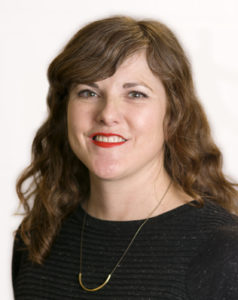
NCALL 20th Anniversary Blog Series
Sara Mayer
I first learned of NCALL during a transitional time in my career. I was doing freelance graphic design work and helping my mom care for my dad who was terminally ill. When a part-time position opened up at NCALL, I applied knowing that steady, part-time work would still give me time with my dad and allow me to provide respite for my mom. Honestly, though, I think sometimes life guides me to places I need to be. My dad soon was unable to stay at home and moved to a nursing home. At the same time, I was learning so much through NCALL’s work. I grew to understand, both personally and professionally, the damaging effects of ageist assumptions of older adults and the importance of being a supportive advocate for my dad’s care.
For two decades, NCALL has contributed incredible work to the field—curricula, toolkits, articles, training resources, and 100’s of videos! My colleagues are prolific! In addition to all of this, something I’m incredibly proud of is personal and may fly a bit under the radar. When I first started at NCALL in March of 2010, our materials and products were anything but visually consistent. With a little persuasion, I was able to make a case to my then supervisor, Linda Dawson, and Bonnie Brandl to prioritize building a brand for NCALL hoping to make it easier for those in the field to recognize and use our resources. I wanted us to have a look and feel that supported our work and was a reflection of NCALL’s values. By December 2010, we adopted our current logo and color palette. From there I worked to make our documents, resources, and PowerPoint slides uniform and more accessible.
Related to this, I also began to create more elder abuse/abuse in later life awareness materials like posters and graphics, which emphasized the strength, autonomy, and resiliency of older survivors of abuse. We wanted to make a departure from the ageist narrative of the frail, bed-ridden, meek older adult. Instead I began using relevant, emotive photos of older adults of various races, gender expressions, and abilities. In the last decade, we’ve leveraged National Stalking Awareness Month (January), Sexual Assault Awareness Month (April), and Domestic Violence Awareness Month (October), along with World Elder Abuse Awareness Day (June 15), to heighten awareness of abuse across the lifespan and promote resources and services for older survivors of abuse. I hope the hallmarks of NCALL design—white space, high contrast color, legible typeface and font size, and compelling photographs—provide a benchmark for the field.
I’m excited about what the future holds for NCALL and I think we’re embarking on exciting, yet overdue, work right now. With NCALL’s partnership with the Vera Institute for Justice on the National Resource Center for Reaching Victims, funded by the Office for Victims of Crime, we’re stretching ourselves to find or create better supports and resources for older adults from marginalized and diverse communities. We’re also challenging the field to prioritize equity and access to all older survivors, particularly those in the margins.
2019 marks my ninth year with NCALL and while some colleagues have moved on to different work and new chapters of their lives, I can say without a doubt, that this team has always been passionate about social justice and deeply invested in the dignity, safety, and well-being of older adults.
